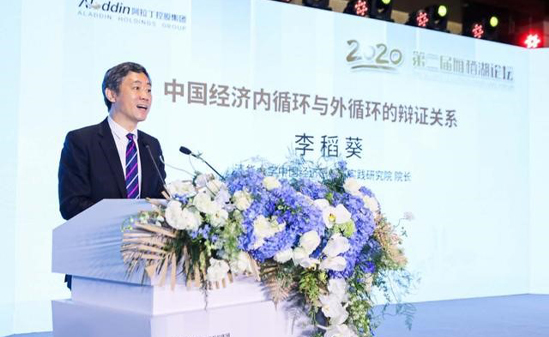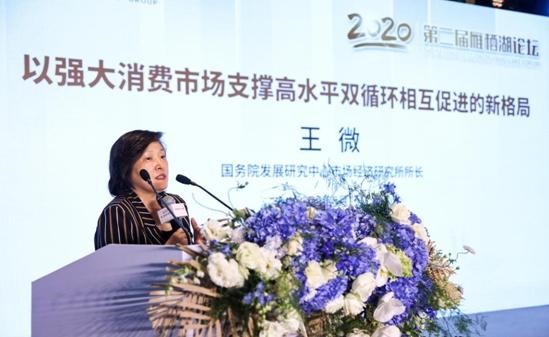Li Daokui:Domestic Cycle is Expected to Drive China's Economy to First Rebound Next Year
At the Second Session of the Yanqi Lake Forum on August 8, hosted by Aladdin Holdings Group and others, experts discussed China's economic outlook and challenges in the context of current events. The pandemic has caused the global economy to deteriorate significantly, and according to Dr. Li Daokui, Director of the Academic Center for Chinese Economic Practice and Thinking (ACCEPT) at Tsinghua University, the global economy may continue to be sluggish for the next five years. However, Zhang Yansheng, Chief Researcher at the China Center for International Economic Exchanges, said that thanks to the expansion of China's market size and capacity, its economy is expected to take the lead in a rebound driven by the domestic cycle next year.

What will the future of China's economy be like in the context of the current global turmoil? In addition to his assertion that the global economy may face a continued downturn for the next five years, Dr. Li Daokui pointed out that the Chinese economy also faces challenges in terms of quality and quantity.
Dr. Li believes that the domestic cycle will lead to a substantial increase in China's final demand, the establishment of a unified market, and the rise of independent innovation capabilities in technology. He said that the domestic cycle serves as the primary momentum for the sustained development of the domestic economy, which has the possibility to increase China's total economic output. On the other hand, the international cycle has the power to bring about an improvement in quality, which will require all sectors in the country to continue learning while pushing technology to become bigger and stronger on the global stage.
Dr. Li also said that the pandemic has emphasized the reality that urbanization is the foundation of China's domestic cycle, and basic urban services including medical care and education should be strengthened.
Zhang Yansheng, Chief Researcher at the China Center for International Economic Exchanges and former Secretary-General of the Academic Committee of the National Development and Reform Commission, said that as globalization is reversed and the effect of the United States’ withdrawal increases, China's foreign trade and investment are also experiencing changes. However, some good news is that China’s market scale and capacity are also expanding.
Zhang Yansheng believes that in the context of rising global systemic risks, China's economy should contract appropriately to avoid such risks, shifting focus primarily to East Asia and the “Belt and Road” regions. Driven by the domestic cycle, China's economy is expected to rebound next year, with an economic growth rate potentially among the highest in the world.

Dr. Wang Wei, Director General of the Market Economy Research Institute of the Development Research Center of the State Council, said that China could already begin using its strong domestic consumer market to build a high-level domestic economic cycle.
Dr. Wang believes that in the future, China needs to create a better policy environment to more effectively promote domestic consumption reform and high-quality development of the economy.
Zhang Liqun, a research fellow at the Department of Macroeconomic Research of the Development Research Center of the State Council, believes that China's massive market has the potential to not only drive domestic economic development, but also boost the world economy.
According to Zhang Liqun's analysis, in the process of the world economy's recovery, China must have the confidence to bolster areas of weakness and activate domestic demand to truly unleash China's economic cycle, thereby driving the international and domestic economies to achieve a dual cycle of mutual support, helping the world economy overcome difficulties and opening a new chapter for China's economic globalization.




